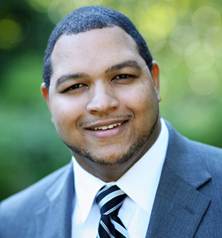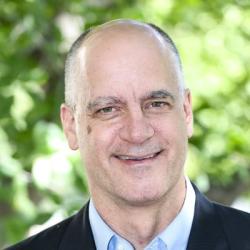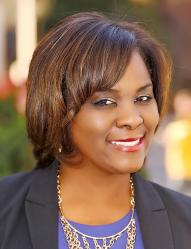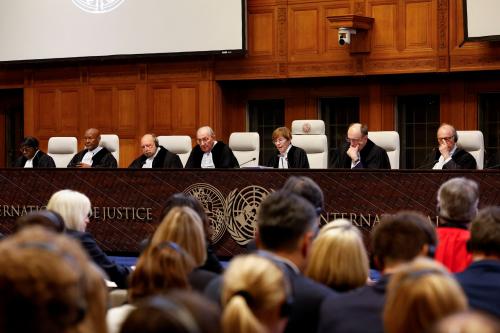To mark the 50th anniversary of Dr. Martin Luther King Jr.’s assassination, Brookings experts weighed in on his contributions to the civil rights movement, his legacy, and the state of race relations in America today. Their thoughts and related research are highlighted below.
|
Gary Burtless, Senior Fellow, Economic Studies:
Without a doubt Dr. King would be profoundly disappointed by progress toward a key aspiration he described in his most famous speech: “I have a dream that my four little children will one day live in a nation where they will not be judged by the color of their skin but by the content of their character.” Fifty years after his death, it is clear that many interactions between Americans with different backgrounds are guided by judgements based on race, skin color, and accent rather than tolerance and an open mind.
I hope Dr. King would take solace from one area in which good sense and toleration have seen some progress. A far higher proportion of Americans today say they approve of interracial marriage than was the case when Dr. King was murdered. Gallup poll surveys tell us that more than 70 percent of adults said they disapproved of interracial marriage back in 1968. By 2007, the percentage disapproving of interracial marriage had dropped below 20 percent. About 80 percent of Americans now say they approve of interracial marriage.
Along with greater tolerance of interracial marriage, we have also seen a rise in actual interracial marriage rates. According to a Pew Research Center analysis, the percentage of married couples consisting of a husband and a wife of different races increased from just 3 percent in 1980 to 8.5 percent in 2010. Even more encouraging, 15 percent of the new marriages in 2010 involved spouses with different racial backgrounds. The rising rates of intermarriage mean that a rising percentage of us have in-laws, cousins, aunts and uncles, grandchildren, and nieces and nephews with racial backgrounds that differ at least partly from our own. Perhaps in another 50 years, the trend toward intermarriage will reduce Americans’ inclination to judge their fellow Americans by the color of their skin. |
|
Amy Liu, Vice President and Director of the Metropolitan Policy Program:
I was recently in Memphis to give a talk as part of the MLK50 series to commemorate Dr. King’s legacy. While there, I visited the National Civil Rights Museum where I received a powerful reminder that the aspirations of the civil rights movement parallel today’s struggles. Contemporary events, from police brutality in cities, to virulently racist protests in Charlottesville and elsewhere, to resistance to neighborhood and school integration efforts, affirm how far our country still has to go. Today, despite the power of new technologies, many people remain on the margins of a dynamic American economy. And, due to tech’s tendency to accelerate economic and geographic divides, existing racial and economic disparities are poised to grow unless deliberate action is taken.
We are reflecting on Dr. King’s legacy at a time when new technologies, powered by iconic brands such as Amazon, Facebook, Google, Uber, and Apple, are concomitant with high inequality. The failure to address racial disparities is not simply bad for humanity; it’s also a major risk to American competitiveness. The strength of the modern economy depends on our collective ability to innovate. Yet black and Hispanic workers are underrepresented in the fast-growing tech sector and other industries. If our country cannot dismantle institutional and cultural barriers to opportunity, we will all pay the costs of not unlocking the power of the next generation—a majority of whom will be people of color by 2020.
What’s encouraging is that across the country, private and public sector leaders in cities like San Diego, Indianapolis, and Chicago are embracing the need to redesign their economies to help more people of color gain relevant skills, grow new businesses, and afford homes in neighborhoods with good schools. Our job is to help these leaders make progress on this urgent effort.
If Dr. King were alive today, he would be disappointed to see the persistence of poverty and economic inequality. Just weeks before his death, at a rally for sanitation workers in Memphis, Dr. King recognized that the achievement of equal rights under the law had not resulted in economic equality when he remarked, “What does it profit a man to be able to eat an integrated lunch counter if he doesn’t earn enough money to buy a hamburger and a cup of coffee?” Dr. King’s call for good jobs, a living wage, and the dignity of work remains urgent today.
Racial and economic inclusion is not a program to be delivered. It is a value that must permeate individual mindsets and actions, organizational missions, the way we share power and collaborate, and forge systemic reforms. In short, a widespread culture shift must take place if we want the United States to live up to its aspirations of being a place of cutting edge innovation and widespread opportunity. For our part, we at the Metropolitan Policy Program are striving to close disparities in cities across the country and help more people prosper in an age of rapid digitalization and demographic change.
|
|
Jonathan Rauch, Senior Fellow, Governance Studies:
For gay and lesbian (and now trans) Americans, Dr. King showed the power of love, moral witness, and persistence to activate the country’s conscience and move seemingly intractable obstacles. Though the fight for (e.g.) same-sex marriage followed a very different trajectory than Dr. King’s battle, our battle relied from beginning to end on the example and hope he gave.
The passage of time has magnified rather than diminished his influence and stature. When he died, his legacy was insecure and his then-current project was floundering. After 50 years, we know his faults and failures as well as his triumphs, and his place in the American pantheon—with the founding generation, Lincoln, and a handful of others—is secure.
If he were around today, he would be defending the FBI—the agency whose lawless abuses caused him no end of grief—from attacks that threaten to undermine the integrity of justice. He’d probably savor the irony. |
|
Carol Graham, Senior Fellow, Global Economy and Development:
I work on poverty, inequality, and well-being, including hope and desperation. One of my key findings in recent years is that poor African-Americans are significantly more hopeful and resilient than poor whites, even though they are materially worse off and have been for decades. It is hard not to think of Dr. King as I explore and try to explain this. In fact, I used a quote from him as the epithet for the chapter on restoring hope in my recent book, Happiness for All? Unequal Hopes and Lives in Pursuit of the American Dream
The 50th anniversary of Dr. King’s death provides a time to think of how far we have come but also, with the tragic turn of events from President Obama’s elegant and hopeful presidency to one in which racism and nativism are being encouraged, how much more we still have to fight for. |
|
Hady Amr, Visiting Fellow, Foreign Policy:
As a child growing up, I was inspired by Dr. King more than any other public figure. His words, “Injustice anywhere is a threat to justice everywhere” guided my focus on human rights and economic development in my career. As part of my research for a Brookings paper, I uncovered the very strong links between civil rights and U.S. leadership in the world. For example, a decade before King’s murder, when an African-American handyman named Jimmy Wilson was sentenced to death in Alabama for stealing a few dollars, the Soviet Union seized upon it to damage U.S. standing worldwide and then U.S. Secretary of State John Foster Dulles stepped in to impose on Governor Jim Folsom of Alabama to commute the unjust sentence. Although I could never live up to even a small part of Dr. King’s legacy, I do my best to remain inspired by him in my work every day. |
|
Marcus Casey, David M. Rubenstein Fellow, Economic Studies:
For me personally, Dr. King’s efforts as well as those who participated in the broader civil rights movement helped set the stage for the educational and professional opportunities that have been made available to me. Moreover, many of the problems that Dr. King hoped to reduce or eliminate remain topics that I have sought to address in my own research such as the causes and consequences of persistent housing segregation and educational disparities as well as the determinants of economic mobility and inequality.
It’s remarkable that, both economically and politically, many of the issues that Dr. King and his colleagues worked on remain relevant. In addition to persistent segregation and racial disparities in access to high quality schools, unemployment rates, incomes, and wealth, questions about voting rights and political participation are again front and center. Notably, we see much higher levels of economic inequality than those Dr. King spoke about before his death. It suggests that despite the observable improvements in society, there remains work to be done.
If he were still alive today, I suspect Dr. King would be largely heartened by the progress in race relations that has occurred since 1968. In the five decades since his death, society has seen a substantial decline in the acceptance of expressions of overt racism, a tremendous increase in amicable cross-racial interaction, the integration of blacks and other historically disadvantaged groups into upper echelons of media, business, sports and the election of a president of African descent. However, the reemergence of the so-called “alt right” and other extremists as well as those who refuse to condemn them would probably lead him to worry about our ability to maintain these gains and move forward. |
|
Jenny Schuetz, David M. Rubenstein Fellow, Metropolitan Policy Program:
In addition to being the 50th anniversary of Dr. King’s death, 2018 marks 50 years since the passage of the Fair Housing Act, which outlawed overt discrimination by mortgage lenders, landlords, and real estate agents. Yet evidence shows that racial discrimination in housing markets still exists, hindering African-Americans’ access to economic opportunity.
As a scholar of urban policy, It’s impossible to study U.S. cities without considering race. Every U.S. city has distinct geographic racial patterns. Neighborhoods in central cities, suburbs, and small towns still tend to be more racially homogenous than the country as a whole. And almost all cities have stark dividing lines that identify “the black side of town” (or the Latino or Asian side). And these geographic divides translate into disparities in school quality, access to jobs and transportation, and other quality of life measures that depend on where families live. We’re still a long way from the integrated, color-blind world that Dr. King dreamed about.
It takes a lot of faith to keep fighting for inclusion and equality, especially when members of the Trump administration openly retreat from the federal government’s responsibility to enforce civil rights laws. I wish we had more public figures today with Dr. King’s ability to awaken the better angels on our shoulders, to persuade us to fight on. |
|
Tony Pipa, Senior Fellow, Global Economy and Development:
While we most often associate Dr. King with fighting for civil rights in the U.S., his vision was universal. He emphasized our interdependence and was eloquent in calling for “a worldwide fellowship” to fight poverty and racism, no matter where it existed. His logic—“Every nation must now develop an overriding loyalty to mankind as a whole in order to preserve the best in their individual societies”—directly challenges the reasoning behind an America First foreign policy, and makes a strong moral case for continued U.S. global leadership and engagement. His love transcended boundaries; ours should too. |
|
Andre Perry, David M. Rubenstein Fellow, Metropolitan Policy Program:
Fifty years after Dr. King’s death, advancements in cell phone technology and cameras simply validate what African-Americans have long known: black lives are devalued. African-Americans hear echoes of the fatal shots that killed King in the footage of the recent deaths of Stephon Clark, Alton Sterling, and many others. King’s words explain that we should not untangle racism into discrete strands. The two-headed monster of implicit bias and unequivocal racism together destroy too many areas of our lives.
If Dr. King were still alive today, he would want federal legislation aimed at ending state-sanctioned killings. If his life had not been taken, King would have marched today shouting “black lives matter” for federal legislation that would hold police accountable for killing unarmed, innocent people as a result of racial bias and profiling. King believed in federal policy as a mechanism to fight discrimination and bigotry. King would not want us to separate the actions of a racist vigilante from a cop who only sees a black man as a threat, especially when the end results are the same.
On this 50th anniversary of King’s death, we owe the civil rights visionary our own persistent, brave efforts to move out of our long-lasting repast to advance policies that will hold the people we trust with our lives accountable for unjustly taking them.
|
|
Nicol Turner Lee, Fellow, Governance Studies:
I have two pictures of Reverend Dr. Martin Luther King, Jr. placed in my office. In one photo, he strikes a pensive pose, and in the other, he stands next to another iconic civil rights leader, Malcolm X, who would be assassinated months later. Each photo serves as my personal reminder that the struggle for civil rights is constant, and I have a role in it as a public intellectual.
There is significance in 2018 marking the 50th anniversary of Dr. King’s death. The race riots in Charlottesville, Virginia. The manipulation of the black vote by Russian operatives who deliberately exploited America’s unsettled conscience on race. The series of suspicious packages that killed several prominent black family members in Austin, Texas. The recent shooting of an unarmed African American male, Stephon Clark, in Sacramento, California. All of these and other incidents make the 50th anniversary of Dr. King’s death meaningful. Taken together, these recent acts of explicit racism—some with fatal consequences—clearly suggest that very little progress has been made toward the attainment of civil rights for black people.
As we reflect on race relations in America today, I would have us return to Dr. King’s state of mind when visiting Chicago in the summer of 1966, which would be his first planned demonstration outside of the South. During that sweltering hot summer, he would witness violent displays of aggression from white Midwest protesters that were trying to run him out of town. Dr. King’s bewilderment over the actions of these people outside of the segregated South would be his wake up call to the ubiquity of white supremacy. Today, those same puzzled feelings would awaken in him as he experiences the race baiting, outright discrimination, and reversal of important civil rights gains led by the current Trump administration. Reflecting on his Chicago experience, he would glean that white supremacy is still very much alive in the U.S., even in the absence of explicit segregationist practices.
The 50th anniversary of his death should not just be about the fretful day of his assassination, but also about the organizing tools he imparted to help the oppressed reclaim their freedom. In his last speech delivered in Memphis, he outlined an economic agenda for the sanitation workers and Memphis residents. He advocated for an economic boycott of certain industries and products. He offered a game plan for stronger black institutions, especially banks. Dr. King understood the power of both nonviolent protests and economic boycotts to shift the equity conversation, and these timeless strategies should continue to be applied in times where social change is badly needed. |
The Brookings Institution is committed to quality, independence, and impact.
We are supported by a diverse array of funders. In line with our values and policies, each Brookings publication represents the sole views of its author(s).












Commentary
Brookings experts reflect on the legacy of Dr. Martin Luther King Jr., 50 years after his assassination
April 3, 2018